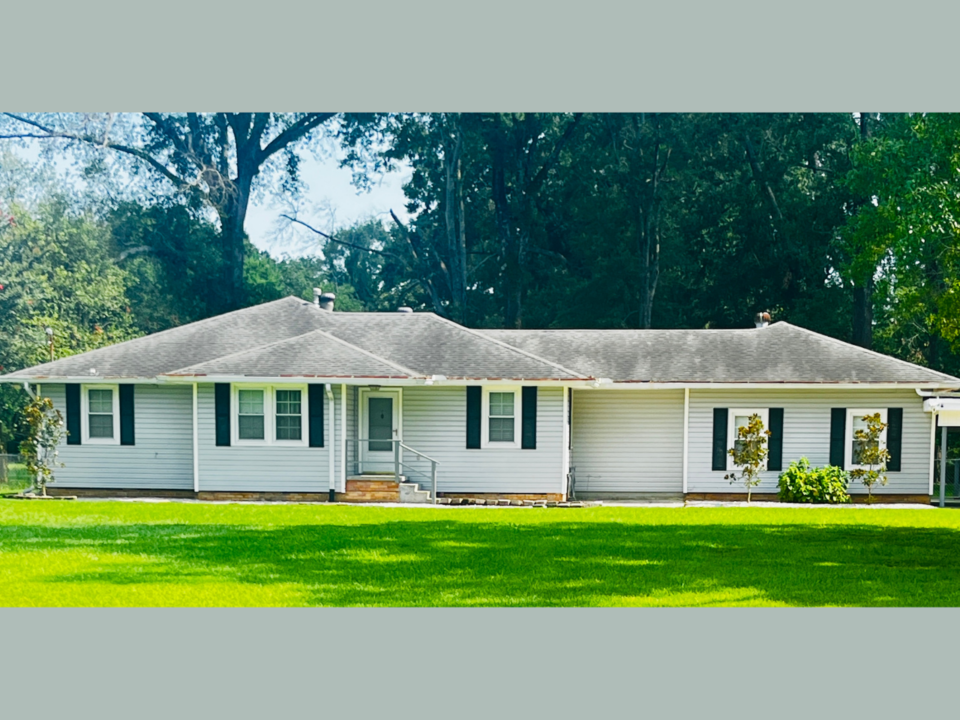Mission Heart in Baton Rouge isn’t just a place; it’s a community infused with love, faith, hope, and transformation for women seeking to rebuild their lives after grappling with substance abuse and other challenges. Since its inception in 2000, this faith-based organization has tirelessly worked to provide a safe haven and comprehensive support system for women in crisis. Women from diverse backgrounds and walks of life find solace within its walls, where they are embraced by a dedicated team committed to their holistic recovery. The journey begins with safe housing, where basic needs are met, and a structured environment fosters stability and personal growth.
A PLACE TO BELONG
Women come to Mission Heart from all walks of life. Most ladies arrive from the local community after struggling with sobriety, and needing assistance finding recovery from substance abuse. With three transitional homes in close proximity, members are able to reinvent themselves in a positive and healthy environment through supportive care with the help of on-site and off-site leadership. Founder and Executive Director, DeeBee Cox says, “Mission Heart exists to help women get acclimated with getting sober. Over time, they become more productive, and hopefully can transition into finding a successful job once they complete the program.” These days, Mission Heart has incorporated a program of 90 days of intensive outpatient therapy. In addition, recovery exists in three phases: Phase 1, Phase 2, and Phase 3.
Phase 1: Sobriety and Stabilization
The program at Mission Heart unfolds in phases, each designed to guide women through distinct stages of rehabilitation and reintegration. In Phase 1, the focus is on sobriety and stabilization. During this time, mothers are reintroduced to their children they haven’t seen in years. Intensive outpatient therapy, coupled with faith-based 12-step meetings and regular medical check-ups, forms the foundation for their recovery journey. Here, they also start addressing legal challenges, often a daunting barrier to their future stability.
Phase 2: Rebuilding
As women progress to Phase 2, they gain valuable life skills such as financial management and employment readiness. They are encouraged to secure jobs, manage finances, and nurture relationships with their children—many of whom they may have been separated from for years. Peer support plays a crucial role as they transition to becoming mentors themselves, guiding new arrivals through their early stages at Mission Heart.
Phase 3: Finding Independence
At the year mark, ladies will be invited to Phase 3 with new opportunities. In the third and final phase, women get their own room, more privileges, and it’s closer to independent living. By Phase 3, residents move towards greater independence, preparing to reintegrate into society as self-sufficient individuals. They learn essential skills like home management and further their education or career aspirations. A large foundation of Phase 3 is about gaining independence through finances, employment, and caring for a family. This phase marks a significant milestone as they prepare to leave Mission Heart with confidence, equipped to sustain their recovery and lead fulfilling lives.
A LIFE BEYOND SOBRIETY
The impact of Mission Heart extends far beyond sobriety alone. For many women, it’s about reclaiming their dignity, reconnecting with their families, and rediscovering their purpose. Success stories abound—mothers reunited with children, former residents thriving in careers they once thought impossible, and families restored after years of separation. One resident in particular got to have this exact success story.
A mother came to Mission Heart after her struggle with substance abuse for years. She was separated from her twin daughters and son for an entire decade, unable to speak with or associate with them. After partaking in the sobriety recovery program that Mission Heart offers, this mother was able to reunite, rebuild, and reconnect with her daughters and son. Now, with adult children, this mother is working hard to help buy her kids vehicles, pay for college, and set her kids up for success. “They see their mom happy, joyful, and full of new life. Despite all obstacles, this mother was able to overcome addiction and create a fulfilling life for herself and also her children,”
says Cox.
The heart of Mission Heart is donations. While the journey is arduous, Mission Heart remains steadfast in its mission, supported primarily through community donations and partnerships. The women’s home welcomes any donations such as paper products, bedding, beds, and female sanitary items. Several churches and foundations give back to help Mission Heart to continue the mission. These donations help not just with temporary housing, but a nurturing environment where women can heal emotionally, spiritually, and physically. With a vision for growth, Mission Heart aspires to expand its facilities to include specialized homes for women with children, ensuring even more families can benefit from their transformative programs.
“One day, we hope to expand our housing opportunities to include women and children,” says Cox. “Until then, we will continue to provide everything to help these women get sober and become all that God wants them to be.”





